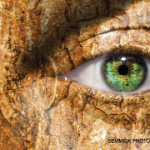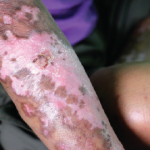Dr. Wigley: I have learned so many lessons from patients that have tuned my skills and made me a better doctor. In fact, every patient sends a message and an experience that fills my list of how to be a good doctor. Here are a couple of examples:
Once, when in medical school, we had a rotation at the Mayo Clinic in Florida where interns worked with residents to provide healthcare to a community with no local doctors. We cared for a patient with a large staphylococcal abscess. Periodically, an attending from the university would come and make rounds to teach and to actually see patients. One visit was from an infectious disease expert from Gainesville, who was a world-renowned expert on staphylococcal infections. He examined the patient’s abscess and made some recommendations. The patient looked up and said: “Am I going to see my doctor today?”
Lesson: Your relationship with the patient comforts the patient more than your credentials.
Another lesson was from a young woman with end-stage scleroderma lung disease and secondary pulmonary hypertension on high-flow oxygen. In the last days of her life, she looked up at me and said: “My lungs are no good, but I feel fine. I am happy and content with my life and family.”
Lesson: Recognize that, despite unrelenting disease, patients overcome distress for the important elements of their life. Give them that opportunity.
A third lesson was from a gentleman with rheumatoid arthritis. It was a time before biologics were available, but with injection therapy and then methotrexate, I controlled his disease. I was very pleased with his status and level of function. He came for a follow-up and gave me a self-portrait. The painting portrayed sadness and distress; he was dressed in a striped, prison-like shirt. I talked with him and realized there were deep emotional issues I had not addressed.
Lesson: I had treated the disease, but not the patient.
TR: What skills, habits, or experiences have you found most helpful in finding the right diagnosis in medical mystery cases that heretofore had been unsolved?
Dr. Wigley: The major skill is leaning on experience. Once I see something I try to learn all about it so that next time it is encountered I have expertise to apply.
I listen carefully to the patient and then clarify concerns so that all of the patient’s symptoms are clear and understood. I try to do a careful exam that I customize for the specific issue (e.g., an expanded neurological exam, if needed), but then do a pre-designed survey of all systems. I figure if you do not look, you do not see. Once, I found an asymptomatic melanoma on the sole of a foot that I would have missed if I had not removed the socks.



